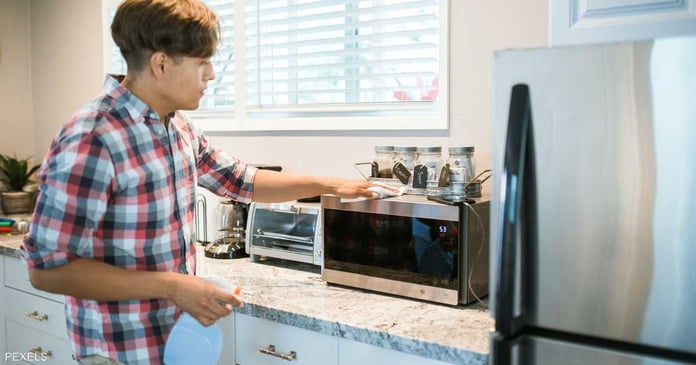And a medical study reported by the British newspaper “Daily Mail” has highlighted that there are 4 foods that carry great risks when reheated and 4 foods that are actually good, contrary to popular belief.
What foods are not safe when reheated?
eggs
Eggs can carry the salmonella bacteria that causes food poisoning, and leaving them outside for long periods of time gives the bacteria more time to multiply. Eggs stored at temperatures between 40 and 165 degrees Fahrenheit are a “risk” and pathogens may grow at a faster rate when they are at this temperature. If there are more pathogens and harmful bacteria in food, there is an increased risk of food poisoning when we eat it. The United States Food and Drug Administration advises not leaving eggs or dishes containing eggs out of the refrigerator for more than two hours, or one hour in hot weather. The difficulty with a microwave is that it can be a bit uneven when heating something.
rice
Cooked rice contains Bacillus cereus, a spore forming bacteria commonly found in soil and vegetables, and found in many raw and unprocessed foods including potatoes, peas, beans and some spices. These bacteria are heat resistant, so even when you heat them, they can still cause harmful pathogens. Symptoms of Bacillus cereus disease include vomiting, diarrhea and abdominal cramps.
spinach
Warming spinach may be directly linked to an increased risk of cancer. Leafy green vegetables like spinach contain compounds called nitrates. When heated, nitrates can break down into other compounds that increase the risk of cancer. Nitrates alone are harmless. However, bacteria already living in the mouth and enzymes in the body can convert it to nitrites and then nitrosamines. These have carcinogenic properties. One study estimated that people get around 80% of their dietary nitrates from vegetables, and nitrates are also found in fennel, radishes, carrots and turnips. If spinach is not heated properly, listeria bacteria can live there and cause listeriosis, a serious infection that leads to fever, flu-like symptoms, headache, stiff neck, confusion and even seizures.
potato
The problem with potatoes isn’t the heat itself, it’s leaving them out too long. Keeping them at room temperature for more than two hours puts them in the “risk zone,” which can lead to overgrowth of C. botulinum. Potatoes cause a state of food poisoning in which the toxins attack the nerves in the body and can cause breathing difficulties, leading to symptoms such as vomiting, nausea, stomach pain and diarrhea. There is also an increased risk of food poisoning with baked potatoes cooked in foil. Part of the dangers posed by mashed potatoes are their perishable ingredients, such as milk, butter, and cream.
What foods are safe when reheated?
fish
Despite its negative reputation for leaving a foul odor in the office microwave, fish carries some risk when reheated the next day. FDA guidance indicates that seafood caught fresh and then immediately frozen can be safely reheated. As with rice and eggs, avoid storing them at room temperature for more than two hours at a time. Microwaving fish can dry it out and ruin its texture. Baking it in the oven or on the stovetop can keep it from drying out. The FDA recommends storing cooked fish in the refrigerator for no more than 3 to 4 days and making sure it is cooked to a temperature of at least 165°F (73°C).
meat
Deli meats have long been a source of panic over listeria warnings, but if cooked and reheated, they are perfectly safe. The Centers for Disease Control and Prevention recommends heating deli meats and cheeses to at least 165 degrees Fahrenheit (73 degrees Celsius) to kill listeria. Listeria is a bacterial infection that someone gets after eating contaminated food.
Milk
Heating milk to high temperatures can kill forms of bacteria such as listeria, salmonella, and E-coli. High heat will destroy these bacteria, so it should be safe to consume.
chicken
Although it probably tastes better and tastes better on the stovetop or in the oven, it’s still safe to reheat chicken in the microwave. The key is to turn it over every two minutes until it reaches 165°F (73°C). Chicken poses very little safety risk as long as it has not been left outside for more than two hours. The Food and Drug Administration also recommends storing cooked chicken in the refrigerator for no more than 1 to 2 days.
Read the Latest World News Today on The Eastern Herald.


